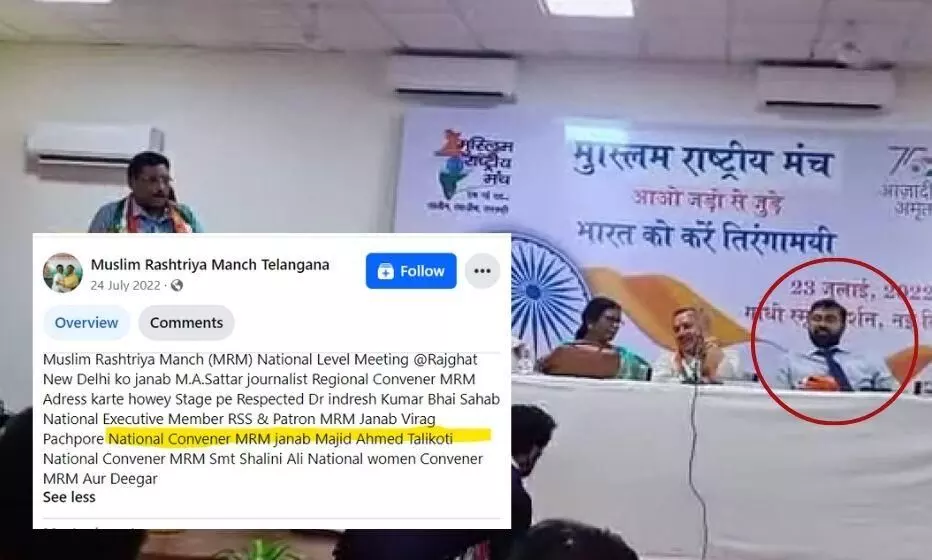
RSS seeks influence at India Islamic Cultural Centre
text_fieldsThe Rashtriya Swayamsevak Sangh (RSS) is making a strategic move to gain a significant presence within the India Islamic Cultural Centre (IICC), an institution dedicated to promoting Islamic culture, by fielding a candidate in its elections.
Dr. Majid Ahmed Talikoti, the national convenor of the RSS-supported Muslim Rashtriya Manch (MRM), has contested for the presidency in the IICC’s recent governing body elections held on August 11.
This move has stirred considerable controversy among IICC members, who express concerns that the RSS’s involvement could undermine the centre’s core mission and potentially alter its future direction. Located in Lodhi Road, Delhi, the IICC holds elections for its governing body every five years.
The current election not only features a presidential race but also contests for vice president, seven Board of Trustees positions, and four Executive Committee spots. The results of these elections are expected to be announced on August 14.
Businessman Sirajuddin Qureshi, who has held the IICC presidency for the past four terms, has openly supported Talikoti’s bid. Qureshi is now running for a position on the Board of Trustees as part of Talikoti’s panel. His endorsement has bolstered Talikoti’s candidacy significantly. In the 2019 elections, Qureshi had defeated Kerala Governor Arif Mohammad Khan, highlighting his strong influence within the IICC.
The election has attracted a competitive field, with seven candidates vying for the presidency. The key contenders include Congress leader Salman Khurshid, former Union Minister and current candidate Talikoti, retired IRS officer Abrar Ahmed, and entrepreneur Asif Habib.
An important stipulation in the IICC’s Memorandum of Articles (MOA) restricts candidates from holding positions beyond the age of 75, which could affect Khurshid’s prospects, given he will reach this age in three years, potentially leading to a midterm election.
The IICC’s membership comprises over 4,000 individuals, including notable figures such as former Union Minister Mohsina Kidwai, Congress leader Karan Singh, and ex-Jammu and Kashmir Chief Ministers Farooq Abdullah and Ghulam Nabi Azad. However, many members, including life members, have been disqualified from voting due to non-payment of annual fees.
The Muslim Rashtriya Manch, founded in 2002 with support from RSS chief K.S. Sudarshan, operates under the guidance of senior RSS members. While MRM claims to represent Muslims, it aligns closely with the RSS’s ideological framework.
Recent activities have included supporting government initiatives and mobilizing votes for the BJP. Talikoti’s association with MRM and his role in recent political campaigns have fuelled concerns among some IICC members about the potential for the RSS to exert control over the centre.
Critics argue that the RSS’s increasing influence in the IICC could jeopardize the institution’s integrity and mission. Some view this as part of a broader strategy to integrate Muslims into the RSS’s ideological framework, while others see it as an opportunity for increased dialogue and understanding between different communities.






















